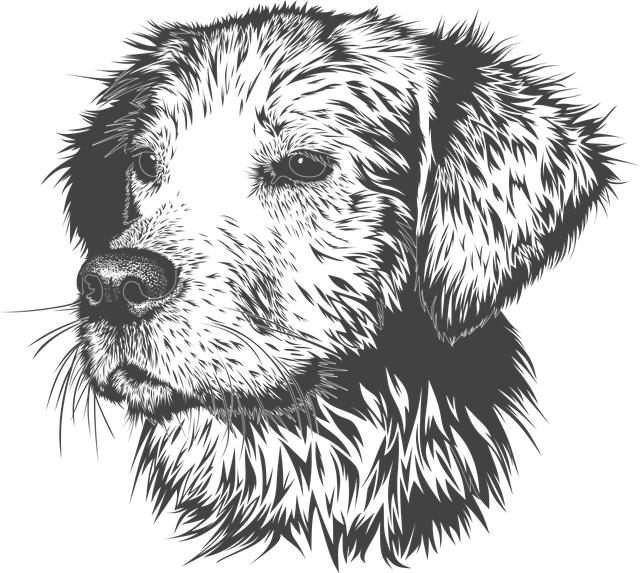Dog getting up too early: Tips for a Well-Rested Pooch

Are your early morning slumbers constantly interrupted by your furry friend eagerly jumping on top of you, demanding attention at the crack of dawn? If so, you’re not alone! Many dog owners struggle with their fluffy companions waking up too early. But fret not, as we’re here to help you achieve a well-rested pooch and ensure a peaceful night’s sleep for both you and your four-legged buddy. In this article, we’ll provide you with expert tips and tricks to address this tiring issue, leaving you feeling confident and in control. So bid farewell to those early wake-up calls and get ready to welcome a harmonious sleep schedule for your beloved pup.
Contents
- 5. Mealtime Matters: Proper Feeding Schedule for a Well-Rested Pet
- 6. Nighttime Bathroom Breaks: Effectively Managing Your Dog’s Bladder Needs
- 7. The Power of Positive Reinforcement: Reward-Based Training for Sleeping In
- 8. Calming Techniques for Excessive Morning Energy: Helping Your Dog Relax before Daybreak
- 10. Seeking Professional Advice: Consulting a Vet or Dog Trainer for Persistent Early Rising
5. Mealtime Matters: Proper Feeding Schedule for a Well-Rested Pet
Mealtime Matters is a vital aspect of maintaining a well-rested pet. A proper feeding schedule not only keeps your furry friend satisfied but also contributes to their overall health and happiness. If your dog is getting up too early, it may be a sign that their feeding schedule needs some adjustments. Here are some tips to help you establish a routine that will ensure your pooch gets the rest they need.
-
Consistency is key: Dogs thrive on routine, so it’s crucial to establish specific meal times and stick to them. Try to feed your dog at the same times every day, making sure there is a sufficient gap between their last meal and bedtime. This will allow their body to digest their food properly and avoid any discomfort during sleep.
-
Avoid late-night snacks: Just like us, dogs can experience indigestion if they eat too close to bedtime. As tempting as it may be to give them a treat before sleep, it’s best to avoid any late-night snacking. Instead, offer a small, healthy snack during their last meal of the day, ensuring they have enough time to digest it before sleep.
-
Monitor portion sizes: Overfeeding can lead to digestive issues and restless nights for your pet. Make sure you are providing the appropriate portion sizes for your dog’s breed, age, and activity level. Consult your veterinarian for guidance on determining the right amount of food for your furry friend.
- Quality meals, quality sleep: The type of food you feed your dog can also impact their sleep quality. Opt for high-quality dog food that is appropriate for their age and specific dietary needs. Avoid foods that contain excessive additives or fillers, as these can trigger digestive discomfort and potentially disrupt their sleep.
By implementing a proper feeding schedule, you can ensure that your dog gets the rest they need, leading to a happier and healthier pet overall. Remember to consult your veterinarian for personalized advice based on your dog’s specific needs. Happy feeding and even happier snoozing!
6. Nighttime Bathroom Breaks: Effectively Managing Your Dog’s Bladder Needs
Having a dog that consistently wakes up too early can be frustrating for both you and your furry friend. One common reason for this early wake-up call is the need for a nighttime bathroom break. Properly managing your dog’s bladder needs can help ensure a well-rested pooch and a peaceful night of sleep for everyone in the household.
Here are some tips to help you effectively manage your dog’s nighttime bathroom breaks:
- Establish a routine: Dogs thrive on routine, so try to establish a consistent schedule for their bathroom breaks. Take them out to relieve themselves right before bedtime and set a specific time for their morning bathroom break.
- Limit water intake before bed: If your dog is waking up too early, it may be because they consumed too much water before bedtime. Try limiting their water intake a couple of hours before going to sleep to reduce the need for a late-night bathroom break.
- Create a comfortable sleeping environment: Ensure your dog has a comfortable bed and a cozy sleeping area. A soothing, dimly lit space can help promote relaxation and minimize restlessness during the night.
Remember, every dog is unique, and it may take some trial and error to find the best approach for managing your dog’s nighttime bathroom needs. With patience and consistency, you can help your dog sleep through the night, resulting in a well-rested and happy pooch!
7. The Power of Positive Reinforcement: Reward-Based Training for Sleeping In
Positive reinforcement is a powerful tool when it comes to training your dogs, and it can work wonders when it comes to getting your furry friend to sleep in a little longer in the mornings. By using reward-based training techniques, you can encourage your dog to stay in bed and enjoy a well-deserved rest. Here are some tips to help you achieve a well-rested pooch:
1. Create a cozy sleeping environment: Make sure your dog has a comfortable and inviting bed to sleep in. Use soft blankets or pillows to make it extra snug. Dogs, just like humans, love a cozy spot to snooze in.
2. Establish a routine: Dogs thrive on routines, so try to establish a consistent sleeping schedule. Stick to regular bedtimes and wake-up times, and be sure to provide your dog with ample exercise and mental stimulation during the day to tire them out.
3. Use positive reinforcement: When your dog manages to sleep in a little longer than usual, be sure to reward them for their good behavior. Praise them, give them a treat, or engage in some playtime to reinforce the idea that sleeping in is a positive behavior. Dogs respond well to positive reinforcement, and they will soon start associating staying in bed with rewards.
By implementing these tips and using positive reinforcement techniques, you can help your dog develop good sleeping habits and enjoy a restful night’s sleep. Remember, consistency and patience are key when it comes to training your furry friend. With time, you’ll have a well-rested pooch that sleeps in and wakes up refreshed.
8. Calming Techniques for Excessive Morning Energy: Helping Your Dog Relax before Daybreak
One common problem dog owners face is their furry friend waking up far too early, leaving everyone in the household feeling tired and groggy. If you’re tired of waking up with the sun thanks to your over-energetic pup, fret not! We’ve got you covered with some helpful tips to ensure your dog gets the rest they need, and you can enjoy a bit of extra shut-eye.
1. Establish a nighttime routine: Dogs thrive on routine, so it’s essential to establish a consistent bedtime routine. This can include activities such as a calming walk, playing with interactive toys, or practicing some basic obedience commands to stimulate their mind and tire them out before bed.
2. Create a cozy sleeping environment: Make sure your dog’s sleeping area is comfortable and inviting. Consider using a cozy dog bed or even a crate with a soft blanket, where they can feel safe and secure while getting their beauty sleep.
3. Limit daytime naps: While it may be tempting to let your dog nap all day, especially if they’ve been up since the crack of dawn, it’s important to limit their daytime naps. Encourage your dog to stay active during the day with walks, playtime, and mental stimulation, ensuring they’re tired and ready to rest when bedtime rolls around.
4. Implement a gradual waking-up process: If your dog tends to wake up excessively early, try implementing a gradual waking-up process. Set an alarm for the time you want your dog to wake up, and slowly move it a few minutes later each day until you reach your desired wake-up time. Reinforce this by rewarding your pup with praise or a small treat when they stay quiet until the designated time.
Remember, consistency is key when it comes to getting your dog into a healthy sleep routine. With a little patience and these calming techniques, you’ll be well on your way to enjoying peaceful mornings and a well-rested pooch.
10. Seeking Professional Advice: Consulting a Vet or Dog Trainer for Persistent Early Rising
One of the most frustrating challenges for dog owners is dealing with a pup who consistently wakes up too early. It can leave both you and your furry friend exhausted, but there are steps you can take to ensure a well-rested pooch. If your efforts to adjust your dog’s sleep schedule have been unsuccessful, it may be time to seek professional advice from a vet or dog trainer.
Consulting a vet is a crucial first step in addressing your dog’s persistent early rising. They can rule out any medical conditions that may be causing the early wake-ups and provide guidance on how to best manage the situation. Additionally, a vet may be able to recommend behavioral adjustments or even prescribe medication if necessary.
A dog trainer can also be an invaluable resource when it comes to tackling early rising. They can help you identify any potential behavioral issues and provide you with the tools and techniques to train your dog to sleep longer. Whether it’s implementing a consistent bedtime routine, crate training, or using a calming supplement or music, a trainer can offer tailored advice to suit your dog’s specific needs.
Remember, each dog is unique, so it’s important to consider your individual circumstances when seeking professional advice. With the help of a vet or dog trainer, you’ll be well on your way to creating a sleep schedule that ensures both you and your furry friend get the rest you need. In conclusion, understanding why your dog may be getting up too early can lead to a happier and well-rested pooch. By implementing a few simple strategies such as adjusting their feeding schedule, maintaining a consistent routine, and creating a comfortable sleeping environment, you can ensure that your furry friend is getting the rest they need to thrive. Remember, each dog is unique, so be patient and flexible in your approach. With a little time and effort, you’ll be on your way to enjoying peaceful mornings and a rejuvenated canine companion. So, why wait? Start implementing these tips today and watch your early rising pup transform into a well-rested, energized bundle of joy!











